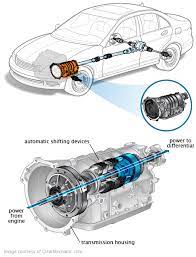What are the things to check when buying used cars?
Buying a used car can be an exciting but daunting task. With so many options available, it's crucial to thoroughly inspect the vehicle to ensure you're making a wise investment. In this comprehensive guide, we'll outline the essential things to check when buying a used car, helping you make an informed decision and avoid potential pitfalls.
Vehicle History:
Begin by obtaining the vehicle's history report, which can reveal crucial information such as past accidents, maintenance records, and odometer readings. A clean history indicates the car has been well-maintained and is less likely to have hidden issues.
Exterior Inspection:
Inspect the exterior of the car for signs of damage, rust, or repainting. Check for uniform panel gaps, consistent paint color, and any dents or scratches. Ensure that all lights, including headlights, taillights, and turn signals, are functioning properly.
Interior Condition:
Step inside the car and assess the overall condition of the interior. Check for wear and tear on the upholstery, dashboard, and steering wheel. Test the functionality of features such as the air conditioning, infotainment system, and power windows.
Mechanical Components:
Pop the hood and inspect the engine bay for any signs of leaks, corrosion, or damage. Check the fluid levels, including oil, coolant, and brake fluid, and look for any abnormal odors or noises. Take the car for a test drive to evaluate its performance, including acceleration, braking, and handling.
Undercarriage Inspection:
Examine the undercarriage of the car for signs of rust, damage, or leaks. Pay particular attention to the exhaust system, suspension components, and frame rails. Rust or corrosion in these areas can indicate significant issues that may require costly repairs.
Vehicle Identification Number (VIN) Verification:
Ensure that the VIN on the vehicle matches the one listed on the title and registration documents. Discrepancies in the VIN can indicate potential fraud or theft.
Pre-Purchase Inspection:
Consider arranging a pre-purchase inspection by a qualified mechanic or automotive technician. They can provide an unbiased assessment of the car's condition and identify any hidden problems that may not be immediately apparent.
Purchasing a used car requires careful consideration and thorough inspection to ensure you're getting a reliable and safe vehicle. By following this checklist and taking the necessary precautions, you can make a confident decision when buying a used car, ultimately enjoying years of worry-free driving.


Comments
Post a Comment